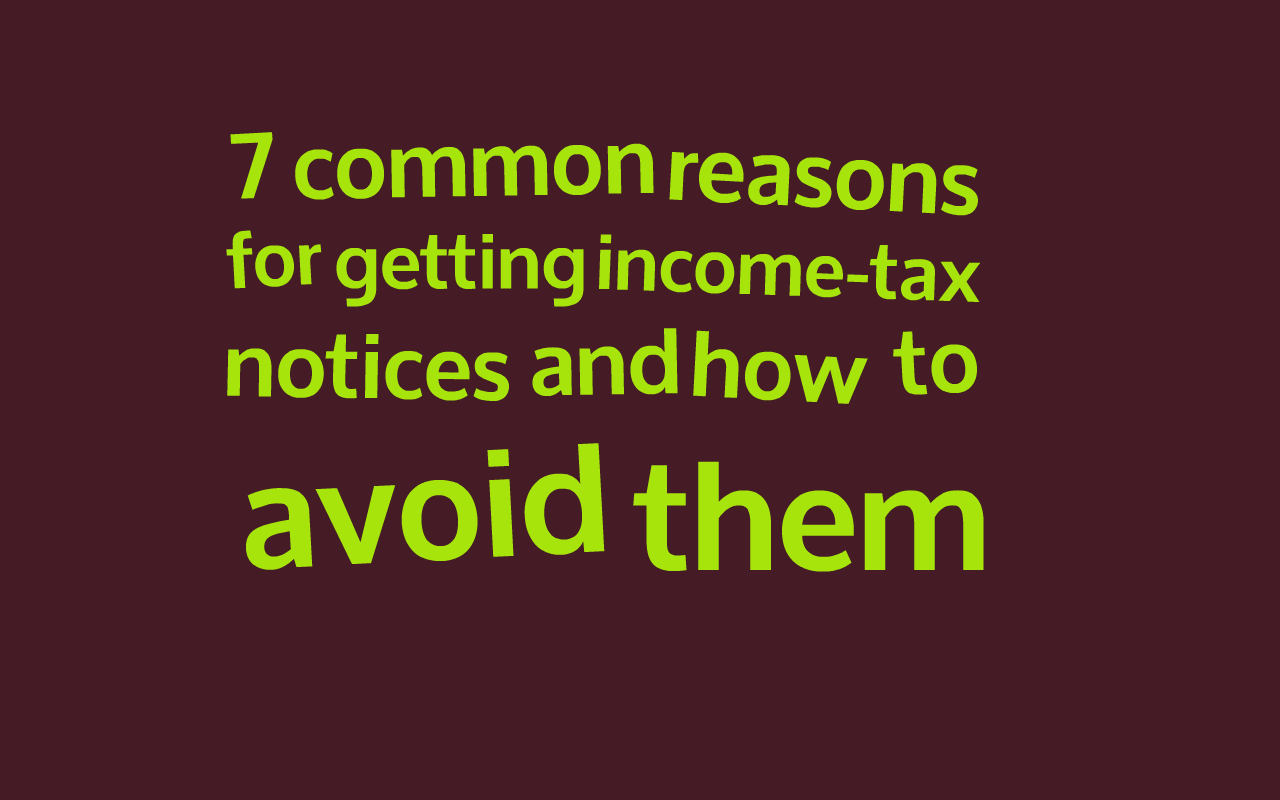Notices from the Income Tax Department are rarely pleasant. The natural reaction of a taxpayer upon receiving a notice is one of panic. However, once the momentary panic has subsided, you should carefully go through the notice and understand what it is about. It may not always be bad news. Often, the I-T department also sends out refunds through notices.
Whatever may be the reason behind the notice, you should respond to it as quickly as you can. Remember: never ignore an income tax notice. The department can impose a fine of as much as Rs 10,000 if a notice isn’t replied.Got a notice and need help resolving it ? Click here!
Most tax notices are about issues that need immediate attention and prompt correction. Here are the most common income tax notices and how you can avoid receiving them:
Reminder to file tax returns
The Income-Tax Department often sends out reminders to those who haven’t filed their income tax returns. These reminders can be sent out for 6 previous years by the department. There is a penalty of up to Rs 5,000 that the department can levy in case of delay in filing returns. If you receive such a reminder, file your returns immediately. It may be possible that you may not be required to file returns by law, which you should intimate the tax department.
Discrepancy in your tax returns
You might get a tax notice if there is a problem with the returns that you have filed. It is possible that you may have forgotten to declare some income, you may have claimed a deduction under the wrong section or the information provided by you is incomplete. In such situations, you should review the notice and your returns and rectify the error.
Error in TDS amount
There is often a mismatch in the tax deducted at source (TDS) amounts in income tax returns. It is possible that your employer or another deductor may have delayed filing their TDS returns or filed incorrect returns. In such a case, you should ask your employer or deductor to review the TDS amount credited to you.
Review of documentations
When you file your tax returns, you don’t need to attach any documents. The Income-Tax Department expects you to furnish the correct information in good faith. However, the department may ask to review some documents on the basis of which you have filed your returns. In such cases, you should immediately submit the documents that have been called for.
Reporting of high-value transactions
There are certain high-value transactions like credit card purchases exceeding Rs 2 lakh, mutual fund investments of more than Rs 2 lakh, cash deposits in a bank of more than Rs 10 lakh, sale or purchase of property of more than Rs 30 lakh, etc that need to be reported to the Income-Tax Department.
Investments in the name of family members
Taxpayers often purchase assets or make investments in the name of their family members–spouse, children, siblings or parents. This is done to evade taxes, but any income from such investments attracts taxes in your name. This income should be declared at the time of filing your returns or you may end up garnering the attention of the tax department. In case of such a notice, you should declare the income and rectify the error.
Scrutiny at random
The Income Tax Department has started to randomly scrutinize returns to enforce tax compliance. If you receive such a notice, check the validity and respond to it accordingly in the time allotted.
